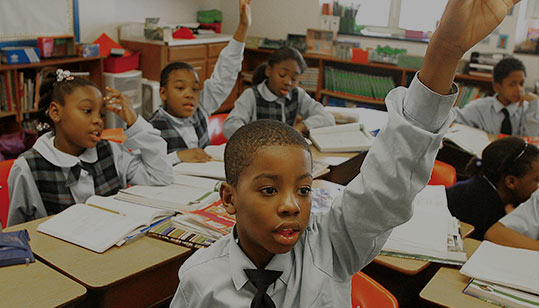Warm-Up Question: Is it appropriate for teachers to say, “I love you” to students? Comment below this blog with your answer.
Early in my teaching career, I met Candace, and accidentally discovered the formula for teaching urban students. Candace was a volunteer step coach at School Without Walls, where I was teaching and struggling actually. Expectations are extremely high at that school and I was a newbie. The step team was an after school program and I was in grad school and busy trying to figure this teaching thing out so I only saw Candace in passing. But I saw her. She was jolly, like me, and that actually pissed me off a little. Who is this happy chick? Doesn’t she know that’s my job? But I loved the step team girls and they loved Candace and so I begrudgingly loved her too, well a little.
The next year something happened and Candace and I ended up co-coaching the step team together. We were reserved around each other at first, but soon we became cool and then we became friends (I don’t use that word lightly).
Something about Candace drew me in. I couldn’t put a finger on it then, but it was the fact that she’s a love agent. Let me define that: Candace believes in the power of love. Like believes in it. She talks about it like it’s a magic potion and she was always saying “I love you” to the kids. She wasn’t soft or hippie about it, she would make girls run laps and follow it up with an “I love you.” I dug it. And the girls did too, because though Candace pushed them past their comfort, it was wrapped so thoroughly in love that they actually craved the challenge.
Naturally, this love revolution rubbed off on me. I studied it in the Word and learned that love is the most powerful force on earth. So when I transferred to an alternative school and started working with over-age and under-credited students (imagine a 20 year old with three credits), my first priority was to show them love. Still, I wasn’t comfortable with using the words. These were grown ass men in most cases. Hardened kids who I didn’t want to take me for soft. But we went on field trips and read outside and talked about our Black lives and I did love them. Really. They were smart and funny and challenged me in ways I hadn’t experienced before. They also came and went, the night school program was a revolving door, but about half a dozen were regulars, two in particular were my favorites—Twin and Denzell. On her twentieth birthday, Twin asked me to take her to church and I happily did.
Twin was murdered a few months after. I never had somebody so close to me die before, but there was no time to grieve. I had students who were hurting and so I had to be strong for them. Plus, I was getting married ten days later, it didn’t seem fair to bring my mourning into that. The solace I had was knowing that Twin knew I loved her. The regret I had was never saying the words to her.
Denzell and I are still close. He dropped out and completed Job Corps and works sometimes with my husband on construction projects. He’s been introduced to my family as a son. He’s been to my house, knows my door is always open to him (I felt like a real mom when he brought his girlfriend over on Christmas to meet me), and every time I see or speak with him, I say “I love you.” How crazy is it that we hesitate to say these words to those who need to hear them the most?


2 Comments
Yes – whatever it takes to ensure that every student knows they are loved; that is what we should do.
This is so true! It is amazing what an individual surrounded by love can accomplish. While I know that it’s taboo to tell the kids that we love them they need to know. Students need to know that we are family and that they are worth fighting for!